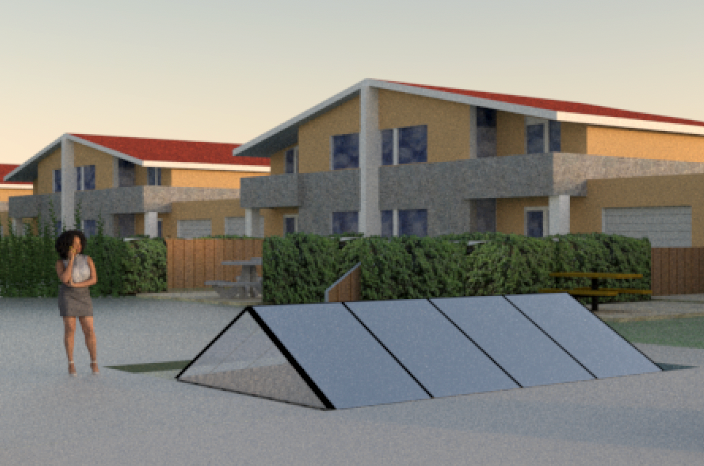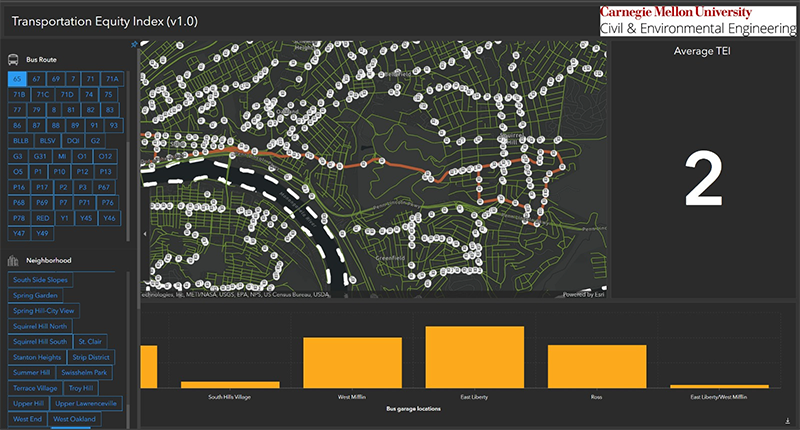
DEI Hackathon Challenges Students to Develop Solutions
CEE’s recent Hackathon challenged students to create Diversity, Equity, and Inclusion (DEI) focused solutions for problems. Teams focused on developing solutions to issues that they find to be personally fulfilling and winning ideas earned students cash prizes. All participants had the opportunity to network with industry experts as well.
The Hackathon was organized by PhD student Min Young Hwang who is part of the department’s DEI committee. “I thought felt that this event would be an opportunity to bring both the undergraduate students and graduate students together,” she explains.
Hwang believes that the takeaways from the Hackathon go much further than just the event itself. She states that DEI focused-solutions help to eliminate barriers and allow for full access to resources and networks for underrepresented groups.
Diverse communities are made up of individuals whose unique identities are shaped by race, ethnicity, gender, sexual orientation, socioeconomic status, age, physical abilities, religious beliefs, political beliefs, and other life experiences and ideologies. DEI-based solutions ensure that all stakeholder groups in a diverse community are actively included in decision-making, implementation, and other participatory processes.
In all, 33 students signed up for the Hackathon, including eight undergrad and three graduate teams. Their projects tackled issues that included creating plans for bridge construction to connect communities, diverting CSO through green infrastructure projects, building early education STEM curriculums for nearby elementary and middle schools, and introducing plans for annual CEE igloo building competitions.
 Undergraduate first-place team, Hikari Harrison, Aurora Fuchs, Amelia Heller, and Madeline Falk, addressed food insecurity in the city of Pittsburgh. Their plan incorporated an existing network of community gardens and proposed adding Walipini-style greenhouses to allow for year-round gardening.
Undergraduate first-place team, Hikari Harrison, Aurora Fuchs, Amelia Heller, and Madeline Falk, addressed food insecurity in the city of Pittsburgh. Their plan incorporated an existing network of community gardens and proposed adding Walipini-style greenhouses to allow for year-round gardening.
 Deeksha Mallikarjuna Prasanna, Ishwrya Achuthan Geetha, Sakar Adhikari, Sri Ramana Saketh Vasanthawada, took the first-place title in the graduate student category by addressing gender equity in public transportation. The team proposed capturing data from the general public to obtain a Transportation Equity Index in an ArcGIS dashboard, that enunciates the first-level indicators: safety, flexibility, and accessibility. The tool would then be able to influence policymakers to address issues and support more public transportation riders.
Deeksha Mallikarjuna Prasanna, Ishwrya Achuthan Geetha, Sakar Adhikari, Sri Ramana Saketh Vasanthawada, took the first-place title in the graduate student category by addressing gender equity in public transportation. The team proposed capturing data from the general public to obtain a Transportation Equity Index in an ArcGIS dashboard, that enunciates the first-level indicators: safety, flexibility, and accessibility. The tool would then be able to influence policymakers to address issues and support more public transportation riders.
In tune with CEE’s goal to incorporate DEI throughout a student’s experience, Hwang sought to keep the event low-key and fun. “We had free pizza, goody bags with CEE items, and networking opportunities during the judging night. Overall, I think this event pushed engineering students to be creative and think about how they can add to their community in a positive way.”